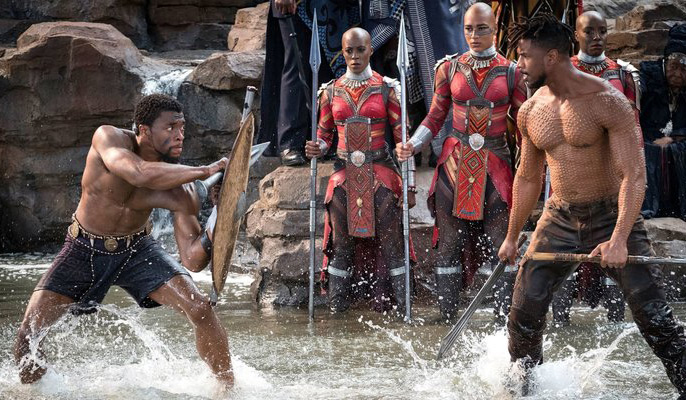Trauma and Healing in Black Panther, Part Two

This week on the podcast, Rachael Clinton, Assistant Director of Program Development & Admissions, Wendell Moss, a mental health therapist and member of our Teaching Staff, and Michael Thornhill, Assistant Director of Cross Cultural Ministry for the Coalition for Christian Outreach, conclude our two-part conversation about the recent hit film Black Panther.
Rachael: “We really do believe that stories matter. All good stories have something to teach us, have something to reveal about the character of God, have something to reveal about who we are in our identity.”
Michael, Wendell, and Rachael turn to the character of Erik Killmonger, the apparent “villain” of Black Panther, whose complexity and humanity challenges the very notion of villains and the false dichotomies we build to avoid our own pain. Black Panther has been widely celebrated for its portrayal of the vibrant, colorful life in Wakanda, but Killmonger had been exiled from that life. The pain of that disconnection had smoldered over time, yielding both prophetic truth-telling and violent rage.
Rachael: “He doesn’t get to have his face reflected back to him in that way, to get to have this dignity that Wakanda represents, this dignity that it gives people.”
Wendell: “Erik Killmonger was—the brother was clearly acting out of trauma. […] But he was also prophetic. The complexity of Erik Killmonger hit me to the core. He made me both angry and he made me weep.”
Michael: “I resonated deeply with this young guy who probably didn’t feel like he belonged in either place.”
That which we don’t name often comes to find us out. And if you don’t name it now, someone else will name it for you.
In different ways, Killmonger and T’Challa are swept up in a systemic, generational story of both experiencing and perpetrating harm. To break the cycle and enact a new way of leading his people, T’Challa must first engage that collective story in all of its shame and grief. He must decide that protecting Wakanda from harm is not worth sacrificing the dignity and humanity of others.
Michael: “Without the story of shame that came from his father, T’Challa’s heart would have never changed. He would have perpetuated the same systemic withdrawal that allowed for continued violence and trauma. […] Where we cannot deal with the fall, we’re not prepared to deal with the resurrection—because we’ll never know what we’ve been redeemed from. If you never deal with your lament, you can never truly experience your joy.”
Wendell: “If this film does not invite you to consider lament, you missed some of the goal.”
Rachael: “As the people of God, it’s important to know our stories, and to be grieved by them when there has been harm and failure. We know that repentance actually does bring us tremendous freedom, and it’s not just about grieving harm that’s been done, it’s about saying how can I be part of actively dismantling systems that have perpetrated harm and moving toward someone in a way that could actually bring reconciliation.”
